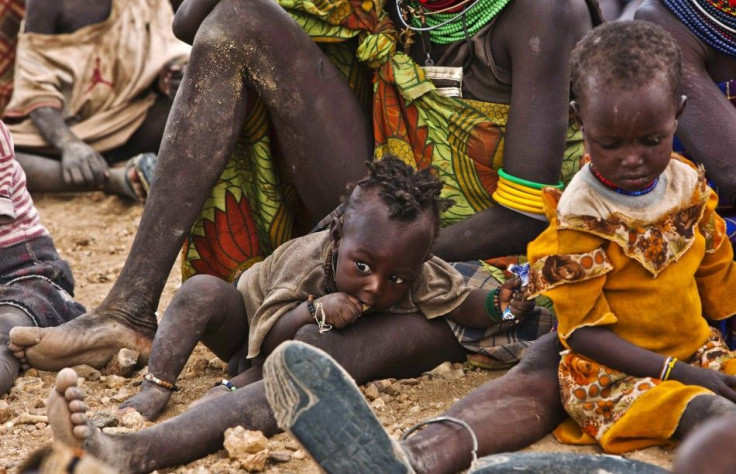British People Giving to East Africa Charity, Despite Grim Economy

Despite rising unemployment and increased economic uncertainty in Britain and Europe, the U.K.-based charity Save The Children (STC) said that its emergency appeal to help famine victims in East Africa has generated the largest donations in its history.
The appeal, which commenced in July, is designed to aid the millions of people who are suffering from a historic drought in Somalia, Ethiopia, Kenya and Djibouti. The disaster is especially acute in Somalia, which is also burdened by political chaos. Tens of thousands of Somalis have fled famine, drought and war for neighboring countries, particularly Kenya where they have created the world’s largest refugee settlement in Dadaab.
In just six months, STC said, it has raised more than £7-million ($10.9 million) in Britain. The funds were used to purchase medical assistance, food and clean water for about 1.7-million east African children affected by the drought.
Even when times are tough at home... British people care deeply about the world's most vulnerable children, the charity said in a statement.
However, given the realities of a grim economic outlook in the UK, STC has called on the British government to contribute more to charity to take pressure off of squeezed households.
Andrew Mitchell, the UK’s International Development Secretary, estimated that up to 100,000 have likely already died in the drought-stricken Horn of Africa between April and August.
The United Nations has warned that while famine is easing somewhat in some regions of Somalia due to foreign intervention, 250,000 people still face imminent starvation, requiring more than $1-billion in immediate aid.
STC said that about 12-million people in the region as a whole are in need of relief.
“Millions of children are hungry, thirsty and desperate,” STC said.
“They are in danger of becoming critically malnourished and, without help, many in the worst hit areas could die. In Somali, hundreds of people are dying every day in the southern region; at least half of these are children. In three camps in Dadaab, Kenya, over 13,000 severely malnourished children have been admitted to health facilities since the beginning of 2011.”
In a column in the Daily Telegraph newspaper, Britain’s Minister for Civil Society Nick Hurd beseeched UK corporations and the wealthy to donate more to charity.
“However strong our tradition of giving, there is scope to do even more,” Hurd wrote.
“UK households actually spend as much on cheese as they do on charity -- less than £1.50 per household a week. The poor give a greater proportion of their income than the rich. Just 8 percent of the population do 49 percent of the giving.
Hurd noted that corporate donations in the UK account for only 3 percent of all private cash given to charities, while in the United States, the figure is 5 percent.
“It’s clear to me that UK companies must place greater emphasis on corporate giving,” he noted. “There is no regulatory commitment for UK companies to give -- it is a moral commitment but clearly there is more that companies could do to support charities. We are all feeling the pressure in these times of economic hardship, but giving doesn’t have to be about financial gifts, it could be a donation in staff time, sharing skills or partnering with charities.”
Hurd’s comments come on the heels of Pope Benedict XVI’s Christmas message in which he, among other things, asked the wealthy nations of the world to help East Africa.
© Copyright IBTimes 2024. All rights reserved.





















